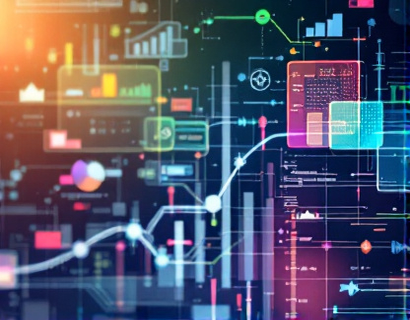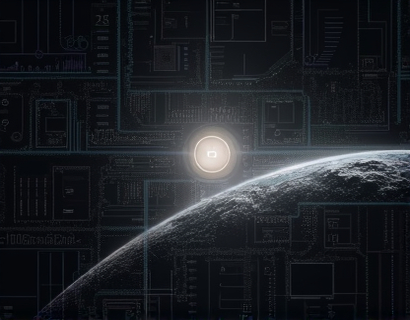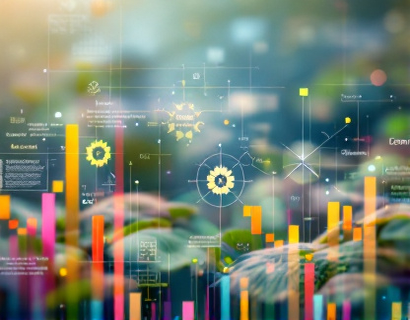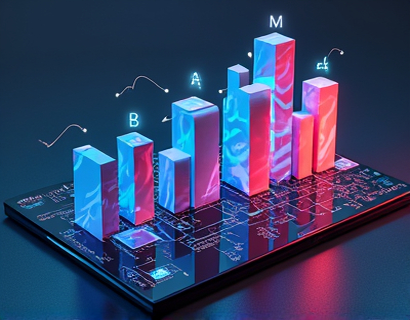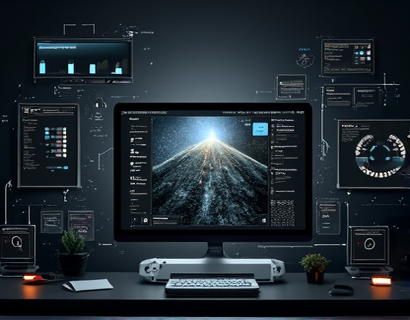Decentralized Productivity Transformed: Leveraging AI and Crypto for Next-Gen App Ecosystems
The integration of artificial intelligence (AI) and cryptocurrency into app ecosystems marks a pivotal shift in how we approach productivity and digital solutions. This transformation is not merely an evolution but a revolution, redefining the very fabric of how applications interact, data is managed, and workflows are executed. For tech-savvy innovators and early adopters interested in the convergence of cryptocurrency, AI, and decentralized solutions, this article delves into the intricacies and potential of this new paradigm.
The traditional centralized model of app ecosystems has been characterized by a few dominant players controlling vast amounts of data and user interactions. This centralization, while efficient in some respects, introduces significant challenges such as data breaches, privacy concerns, and bottlenecks in scalability. The advent of decentralized technologies, powered by blockchain and AI, offers a promising alternative that addresses these issues head-on.
Decentralization: The Backbone of Next-Gen App Ecosystems
Decentralization, at its core, involves distributing control and data across a network of nodes rather than relying on a central authority. This approach not only enhances security and transparency but also fosters innovation by allowing multiple participants to contribute and benefit from the ecosystem. In the context of app ecosystems, decentralization means that applications are not controlled by a single entity but are instead maintained and improved by a community of developers and users.
One of the key technologies driving this decentralization is blockchain. Blockchain provides a secure, immutable ledger for transactions and data storage, ensuring that all interactions within the ecosystem are transparent and tamper-proof. Smart contracts, self-executing contracts with the terms directly written into code, further automate and enforce agreements, reducing the need for intermediaries and lowering transaction costs.
AI: The Intelligence Driver
Artificial intelligence complements decentralization by bringing intelligence and automation to the app ecosystem. AI algorithms can analyze vast amounts of data, identify patterns, and make predictions, all of which can be leveraged to enhance user experiences and optimize app performance. In a decentralized setting, AI can be deployed across the network, enabling real-time decision-making and personalized services without compromising on privacy or security.
Machine learning, a subset of AI, plays a crucial role in adapting applications to user behavior and preferences. By continuously learning from user interactions, AI can refine recommendations, streamline workflows, and predict user needs, making applications more intuitive and efficient. This synergy between AI and decentralization creates a powerful force that can transform how we interact with digital tools and services.
Enhanced Security and Privacy
Security and privacy are paramount in any app ecosystem, and the combination of AI and decentralization offers robust solutions. Blockchain's inherent security features, such as cryptographic hashing and consensus mechanisms, ensure that data is protected from unauthorized access and tampering. AI enhances this by detecting and mitigating potential threats in real-time, identifying anomalies and suspicious activities that could indicate a security breach.
Privacy is another area where this integration shines. Decentralized systems allow users to maintain control over their data, deciding who can access it and for what purpose. AI can help manage and anonymize data, ensuring that user privacy is preserved while still enabling valuable insights and personalized services. This balance between utility and privacy is a significant advantage of decentralized AI-driven app ecosystems.
Scalability and Interoperability
Scalability has long been a challenge for centralized app ecosystems, where a single point of failure can cripple the entire system. Decentralized architectures, on the other hand, are inherently more scalable as they distribute the load across multiple nodes. This not only prevents bottlenecks but also allows for seamless expansion as the ecosystem grows.
Interoperability is another critical aspect, enabling different applications and services within the ecosystem to communicate and work together seamlessly. Blockchain protocols and AI-driven middleware can facilitate this interoperability, ensuring that data and services are accessible across various platforms and devices. This interconnectedness fosters a more dynamic and versatile app ecosystem, where users can leverage a wide range of tools and services without friction.
User-Centric Design and Experience
The user experience is at the heart of any successful app ecosystem. Decentralized AI-driven solutions prioritize user needs and preferences, creating more intuitive and user-friendly interfaces. AI can analyze user behavior and feedback to continuously improve the app, addressing pain points and enhancing functionality. This user-centric approach ensures that the ecosystem remains relevant and valuable, driving user engagement and retention.
Moreover, decentralization empowers users by giving them more control over their digital lives. They can choose which data to share, with whom, and for what purposes, fostering a sense of ownership and trust. AI can assist in this process by providing clear, understandable interfaces and tools that make it easy for users to manage their digital assets and interactions.
Innovative Business Models
The convergence of AI and decentralization opens up new possibilities for business models in app ecosystems. Traditional revenue streams, such as subscription fees and advertising, can be complemented or replaced by more innovative approaches. For instance, token-based economies can incentivize users to contribute value to the ecosystem, whether through data, computational resources, or content creation. These tokens can be used to access premium features, participate in governance, or earn rewards, creating a more engaged and motivated user base.
Decentralized autonomous organizations (DAOs) are another innovative model that leverages blockchain and AI to manage and govern the ecosystem. DAOs allow for decentralized decision-making, where community members vote on proposals and allocate resources. This democratic approach ensures that the ecosystem evolves in line with the collective interests of its participants, fostering a more inclusive and sustainable environment.
Case Studies and Real-World Applications
Several projects and platforms are already demonstrating the potential of decentralized AI-driven app ecosystems. One notable example is a decentralized social media platform that uses blockchain to ensure data ownership and AI to curate content based on user preferences. This platform not only enhances user privacy but also creates a more engaging and personalized experience by leveraging AI algorithms to surface relevant content.
Another example is a decentralized productivity suite that utilizes AI to automate tasks and manage workflows across multiple applications. Users can integrate various tools and services into a unified interface, with AI handling the coordination and optimization. This not only streamlines workflows but also reduces the cognitive load on users, making complex tasks more manageable.
Challenges and Considerations
While the potential of decentralized AI-driven app ecosystems is vast, there are several challenges and considerations to address. One of the primary hurdles is the technical complexity involved in building and maintaining such systems. Developers need a deep understanding of both blockchain and AI to create robust and efficient applications.
Regulatory uncertainty is another factor, as the legal framework for decentralized technologies and cryptocurrencies is still evolving. Ensuring compliance and navigating the regulatory landscape is crucial for the adoption and success of these ecosystems. Additionally, user education and adoption remain key challenges, as many users are still unfamiliar with decentralized technologies and their benefits.
Future Outlook
The future of app ecosystems is undeniably decentralized and AI-driven. As technology continues to advance and more developers and users embrace these innovations, we can expect to see even more sophisticated and user-friendly applications. The integration of 5G, edge computing, and quantum computing will further enhance the capabilities of decentralized AI-driven ecosystems, opening up new possibilities for productivity and digital transformation.
In conclusion, the fusion of AI and decentralization represents a transformative shift in the app ecosystem landscape. By leveraging the strengths of both technologies, we can create more secure, scalable, and user-centric digital solutions that redefine productivity and workflows. For those interested in this cutting-edge space, the opportunities are vast, and the potential for innovation is limitless.





